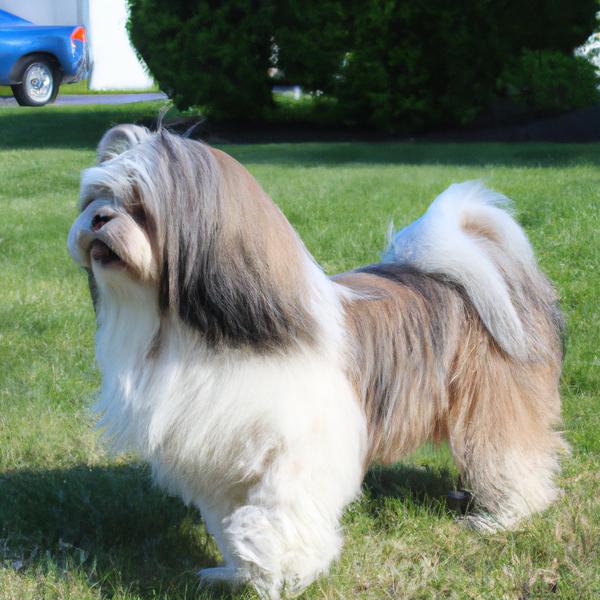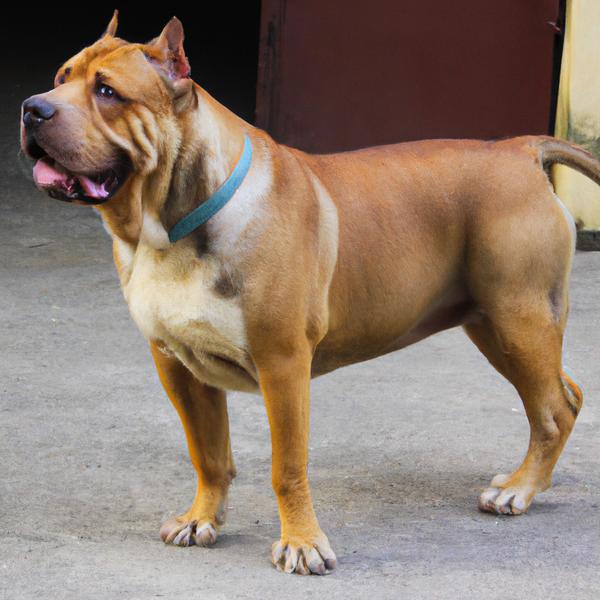Sheltie Tzu vs. Masti-Bull: Breed Differences and Similarities
Hypoallergenic
Are Sheltie Tzus or Masti-Bulls hypoallergenic, or neither?
Unfortunately, neither Sheltie Tzu nor Masti-Bull are hypoallergenic, which may not make them the best choice for dog lovers who suffer from pet allergies.
Temperament
What are the personalities of Sheltie Tzu and Masti-Bull dogs?
Active
Playful
Happy
Courageous
Intelligent
Friendly
Outgoing
Responsive
Affectionate
Lively
Gentle
Loving
Protective
Alert
Courageous
Intelligent
Friendly
Affectionate
Loyal
Social
Sweet
Aggressive
Cheerful
Shedding Level
Do Sheltie Tzus shed more than Masti-Bulls, or which breed sheds more, Sheltie Tzus or Masti-Bulls?
Sheltie Tzus are low shedding dogs, requiring minimal coat care.
Masti-Bulls are moderate shedders, but regular brushing can reduce shedding and maintain coat health.
Watchdog Ability
Which dog breed makes a better watchdog, the Sheltie Tzu or Masti-Bull?
Avoid Sheltie Tzus as watchdogs - they're not effective.
Masti-Bulls aren't great guard dogs; they tend to just watch without taking action.
Origin
What is the origin of Sheltie Tzu and Masti-Bull dog breeds?
United States
United States
Ancestry
What are the origins of Sheltie Tzu and Masti-Bull breeds?
Shetland Sheepdog and Shih Tzu
Mastiff and Bulldog
Breed recognition
Which kennel clubs recognize/register Sheltie Tzu and Masti-Bull?
ACHC = American Canine Hybrid Club
DRA = Dog Registry of America, Inc.
ACHC = American Canine Hybrid Club
DRA = Dog Registry of America, Inc.
IDCR = International Designer Canine Registry®
Date of Birth
When were Sheltie Tzu and Masti-Bull breeds first developed?
2000s
Unknown
Eye Color Possibilites
What are the eye colors of Sheltie Tzu and Masti-Bull dogs?
Blue
Brown
Hazel
Brown
Nose Color Possibilites
What are the natural nose colors of Sheltie Tzu and Masti-Bull?
Black
Black
Brown
Coat Color Possibilites
What are the natural colors of the coat for Sheltie Tzu and Masti-Bull breeds?
Black
Brown
Red
Cream
Fawn
Blue
Silver
White
Sable
Brindle
Black
Brown
Cream
Fawn
White
Pied
Coat Length
What is the typical coat length for Sheltie Tzu and Masti-Bull breeds?
Sheltie Tzus have longer coats compared to most dogs.
Masti-Bulls have short coats.
Coat Density
What is the density of the coat of Sheltie Tzu and Masti-Bull?
Coat Texture
What is the hair texture of Sheltie Tzu and Masti-Bull?
Straight
Litter Size
What is the usual litter size for Sheltie Tzu and Masti-Bull?
A Sheltie Tzu can have a litter of 4-6 puppies on average. However, it's worth noting that the size of the litters can vary greatly. Factors that can influence litter size include the health of the mother, breeding history, and genetics.
A Masti-Bull can have a litter of 3-5 puppies on average. However, it's worth noting that the size of the litters can vary greatly. Factors that can influence litter size include the health of the mother, breeding history, and genetics.
Adaptability
Sheltie Tzu and Masti-Bulls are known for their adaptability and versatility. They are capable of adapting well to a wide range of lifestyle changes and living environments, making them great companions for families and individuals of all lifestyles.
Health Issues
Between Sheltie Tzu and Masti-Bull, which breed is more prone to health problems?
While the Sheltie Tzu breed is generally healthy, occasional vet check-ups are still necessary to address any health concerns.
The Masti-Bull breed is generally very healthy, requiring minimal vet visits. Still, it's important to keep an eye on their health and seek veterinary care when needed.
Major Concerns
What are the major health concerns for Sheltie Tzu and Masti-Bull breeds?
Patellar Luxation
Von Willebrand's Disease
Brachycephalic Syndrome
Patent Ductus Arteriosis (PDA)
Intervertebral Disc Disease (IVDD)
Cataracts
Canine Hip Dysplasia
Hypothyroidism
Progressive Retinal Atrophy (PRA)
Gastric Dilation Volvulus (GDV) or Bloat
Minor Concerns
What minor health issues should be kept in mind when owning Sheltie Tzu and Masti-Bull?
Entropion
Ectropion
Deafness
Exposure Keratopathy Syndrome
Eye Conditions (Cataracts, Lens Luxation)
Demodectic Mange
Seizures
Occasional Tests
What occasional tests are recommended for Sheltie Tzu and Masti-Bull breeds?
Eye Examination
Respiratory Tests
Skin Evaluation
Blood And Urine Analysis
Hearing Tests
Diagnostic Imaging
DNA
Hip And Eyes
Energy
How do the energy levels of Sheltie Tzus and Masti-Bulls compare?
Sheltie Tzus are suitable for those with a balanced lifestyle as they have an average energy level.
Masti-Bulls are a good choice for a low-key lifestyle due to their low energy levels.
Social Needs
Sheltie Tzu vs Masti-Bull social needs comparison
Sheltie Tzu has very high social needs and requires regular mental and physical stimulation, a job or purpose, and companionship.
Masti-Bull has above average social needs and thrives with interaction with humans and other dogs.
Exercise Needed
Sheltie Tzu vs Masti-Bull exercise need comparison.
The Sheltie Tzu and Masti-Bull breeds require a moderate amount of physical activity to maintain a healthy lifestyle. They are ideal for people who have a moderate amount of time to devote to their pets and enjoy regular physical activity themselves. They also make great family pets as they have the energy to keep up with children and the temperament to be great companions.
Sleeping Need
Which of the two sleeps the most/least: Sheltie Tzu or Masti-Bull?
Sheltie Tzus have moderate energy levels and typical sleep patterns of 12-14 hours per day.
Masti-Bulls are known for their relaxed and calm nature and enjoy long periods of sleep.
Tendency to Bark
Do Sheltie Tzus or Masti-Bulls bark more/less frequently?
Sheltie Tzu dogs are generally less vocal than other breeds and only bark when necessary, such as to alert their owner or communicate.
Masti-Bulls are typically quiet and only bark when needed, such as to alert their owner or when in distress.
Mouthiness
Mouthiness Comparison: Sheltie Tzu vs Masti-Bull?
Roaming urge
Sheltie Tzu vs Labrador: Running away tendency?
Prey Drive
Sheltie Tzu or Masti-Bull - which breed has a higher level of prey drive?
Activity Level
Which breed has higher energy, Sheltie Tzus or Masti-Bulls?
Both Sheltie Tzu and Masti-Bull are medium-energy dogs that enjoy socializing and playing with other dogs. They may engage in casual or sustained games of chase, and occasionally have bursts of barking or racing around the house.
Tolerance of being left alone
Walks per Week
How many miles should Sheltie Tzu or Masti-Bull walk each week?
There's really no limit to how far you walk your dog as long as they're comfortable. For Sheltie Tzu, it's at least 5 miles / week. Just remember to build distance and stamina gradually over time.
There's really no limit to how far you walk your dog as long as they're comfortable. For Masti-Bull, it's at least 8 miles / week. Just remember to build distance and stamina gradually over time.
Activity per Day
Do Sheltie Tzus or Masti-Bulls require more exercise?
Both Sheltie Tzu and Masti-Bull typically require a minimum of 45 minutes of exercise each day. The exercise can be spread throughout the day and may involve high-energy activities like walking, running, and playing.
Grooming
Which breed is easier to maintain in terms of grooming, Sheltie Tzus or Masti-Bulls?
Sheltie Tzus have high grooming needs, requiring regular trims and professional grooming assistance to keep their coat healthy.
The Masti-Bull requires an average amount of grooming compared to other breeds.
Brushing Frequency
What is the recommended brushing frequency for Sheltie Tzu and Masti-Bull dogs?
Ideally, Sheltie Tzu should be brushed at least 2 or 3 times a week (preferably daily) improve shedding.
In general Masti-Bull should be brushed at least once a month. Of course you can give them more frequent brushes, especially if they enjoyed it
Brushing Tools
What brushing tools are used for Sheltie Tzus and Masti-Bulls?
Pin Brush
Dematter
Comb
Clipper
Pin Brush
Nail Clipper
Cups
How much food should be given to Sheltie Tzu or Masti-Bull in cups?
For an average 20-25 pound (9 - 11 kg) Sheltie Tzu feed 1.5 cups daily. But, keep in mind, the amount you feed is going to be dependent on the quality of the food you are feeding.
For an average 125-150 pound (57 - 68 kg) Masti-Bull feed 3 cups daily. But, keep in mind, the amount you feed is going to be dependent on the quality of the food you are feeding.
Daily Cost
Which breed has a higher daily cost, Sheltie Tzu or Masti-Bull?
The average cost of a Sheltie Tzu is somewhere $1.70 - $2.20 per day.
The average cost of a Masti-Bull is somewhere $3.80 - $4.20 per day.
Monthly Cost
Which breed has a higher monthly cost, Sheltie Tzu or Masti-Bull?
The average per month expenses of a Sheltie Tzu is between $34 - $67. This makes an average of $408 - $804 per year. It will be on the higher side when the dog is still small because it will need more frequent visits to the vet, shots.
The average per month expenses of a Masti-Bull is between $112 - $126. This makes an average of $1344 - $1512 per year. It will be on the higher side when the dog is still small because it will need more frequent visits to the vet, shots.
Intelligence
Comparing Intelligence: Sheltie Tzus vs Masti-Bulls
Sheltie Tzu is a very intelligent and trainable breed.
Masti-Bull is an independent and stubborn breed with low obedience intelligence, making training a test of patience.
Sensitivity Level
How do Sheltie Tzu and Masti-Bull compare in sensitivity?
These breeds are more sensitive than others and easily overwhelmed by new surroundings and people. Sheltie Tzu and Masti-Bull need gentle handling and a calm, stable home environment with positive reinforcement training.
Affection Dependance
Which is the more affectionate dog breed: Sheltie Tzu vs Masti-Bull?
Apartment Friendly
Which breed is more apartment-friendly: Sheltie Tzu or Masti-Bull?
Sheltie Tzu and Masti-Bull are apartment-friendly dog breeds. They can do perfectly well in apartments providing they are sufficiently exercised and taken out and about as part of their owner's daily lifestyle.
Child Friendly
Do Sheltie Tzus or Masti-Bulls have a friendlier temperament towards children?
Sheltie Tzus have an average level of friendliness towards children.
Masti-Bulls make excellent family pets for kids due to their gentle, protective nature and calm temperament.
Senior-friendly
Which dog is more suitable as a pet for the elderly - Sheltie Tzu or Masti-Bull?
Cat Friendly
Do Sheltie Tzu or Masti-Bull breeds have a better compatibility with cats?
Sheltie Tzus and Masti-Bulls are very cat friendly dogs. They generally make good companions for cats.
Dog Friendly
Which breed is more sociable with other dogs: Sheltie Tzu or Masti-Bull?
Sheltie Tzus are generally very friendly towards other dogs, with a happy and affectionate temperament.
Masti-Bulls are friendly and active companions, and can be good family pets, though their friendliness towards other dogs may vary.
Pet friendly
How do Sheltie Tzu or Masti-Bull dogs interact with other pets?
Stranger Friendly
Which breed is more friendly with strangers: Sheltie Tzu or Masti-Bull?
Sheltie Tzus are averagely friendly around strangers but benefit from early socialisation.
Masti-Bulls are friendly but may bark at strangers, and training is easy due to their intelligence.
Playfulness
Which breed is more playful between Sheltie Tzu and Masti-Bull?
Sheltie Tzus have an average level of playfulness, enjoying playtime like most dogs but not excessively so.
Masti-Bulls are not known for being a highly playful breed.
Trainability
How do the trainability levels of Sheltie Tzus and Masti-Bulls compare?
Sheltie Tzu and Masti-Bull dogs are usually easy to train, but may require consistency to fully obey commands.
Compare Sheltie Tzu with other breeds
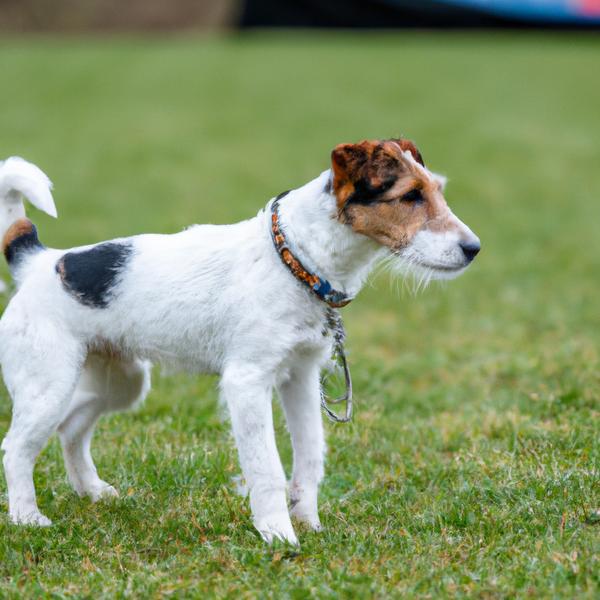
Parson Russell Terrier
Sheltie Tzu vs Parson Russell Terrier

King Wheaten
Sheltie Tzu vs King Wheaten
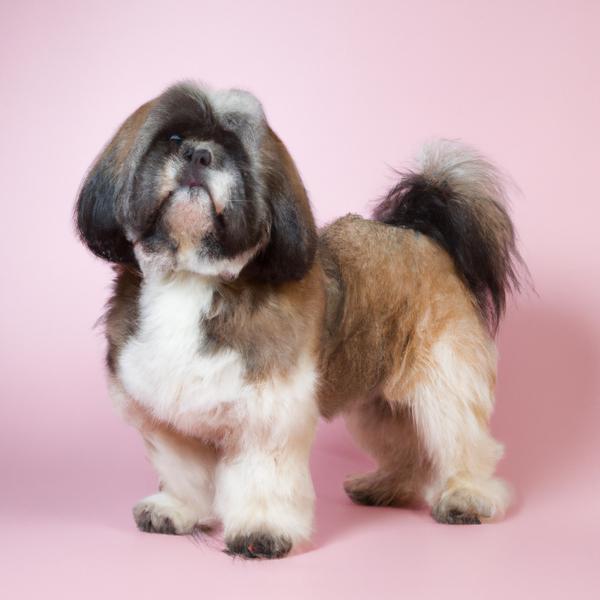
Engatzu Spaniel
Sheltie Tzu vs Engatzu Spaniel

Pekepoo
Sheltie Tzu vs Pekepoo
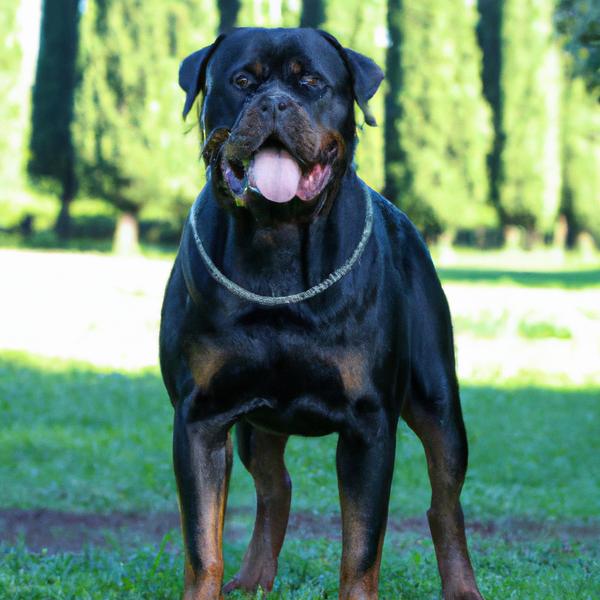
Rotticorso
Sheltie Tzu vs Rotticorso
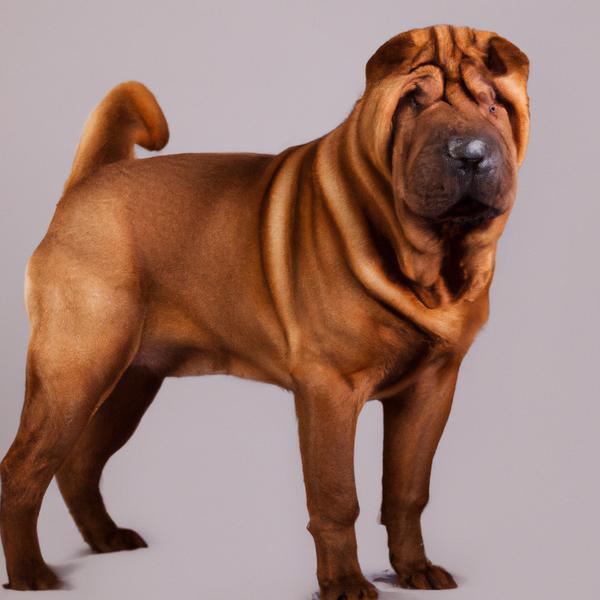
Rus-A-Pei
Sheltie Tzu vs Rus-A-Pei

Smooth Scottish Fox Terrier
Sheltie Tzu vs Smooth Scottish Fox Terrier
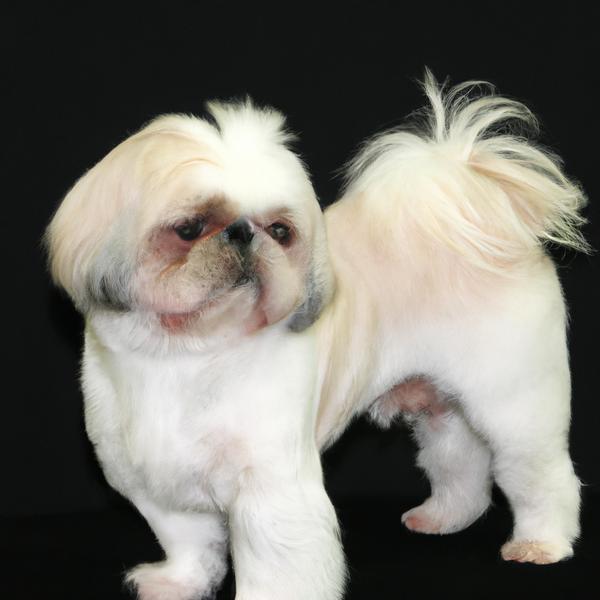
Malti-Pug
Sheltie Tzu vs Malti-Pug
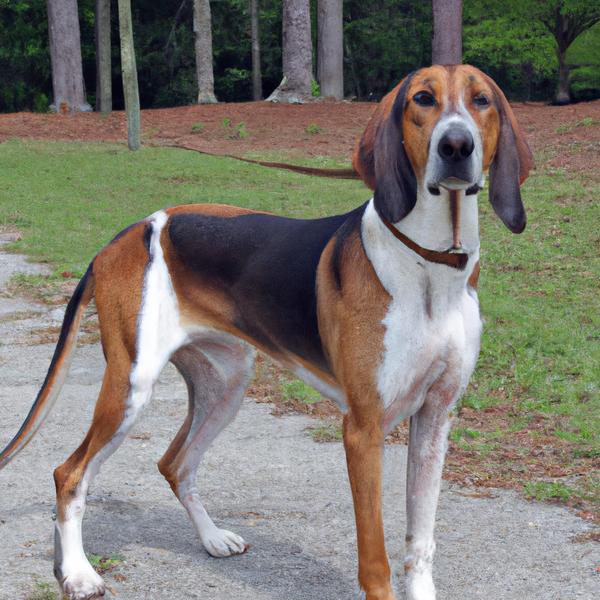
Treeing Walker Coonhound
Sheltie Tzu vs Treeing Walker Coonhound

Yorkie-Apso
Sheltie Tzu vs Yorkie-Apso
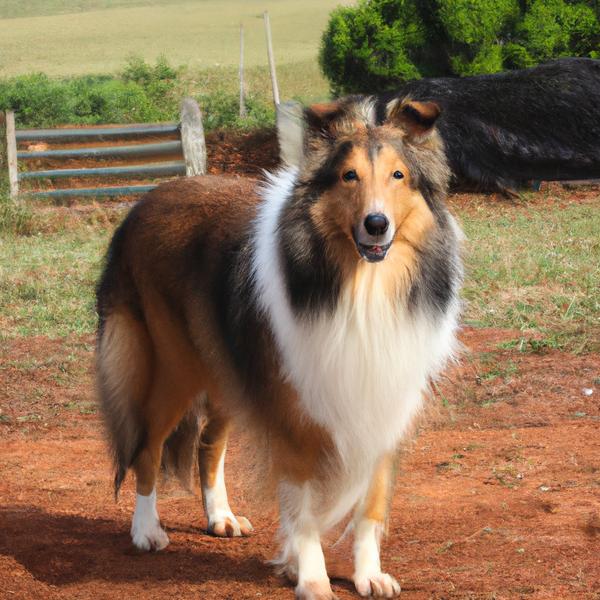
Collie
Sheltie Tzu vs Collie

Ratshire Terrier
Sheltie Tzu vs Ratshire Terrier
